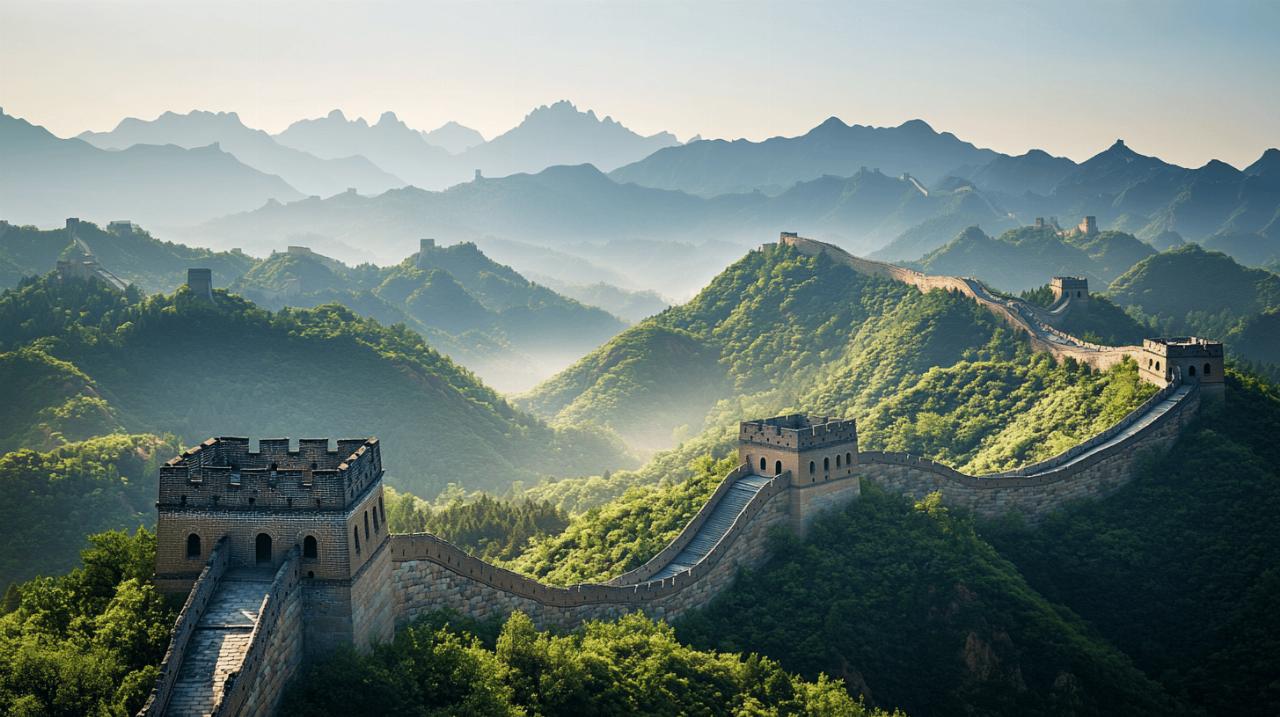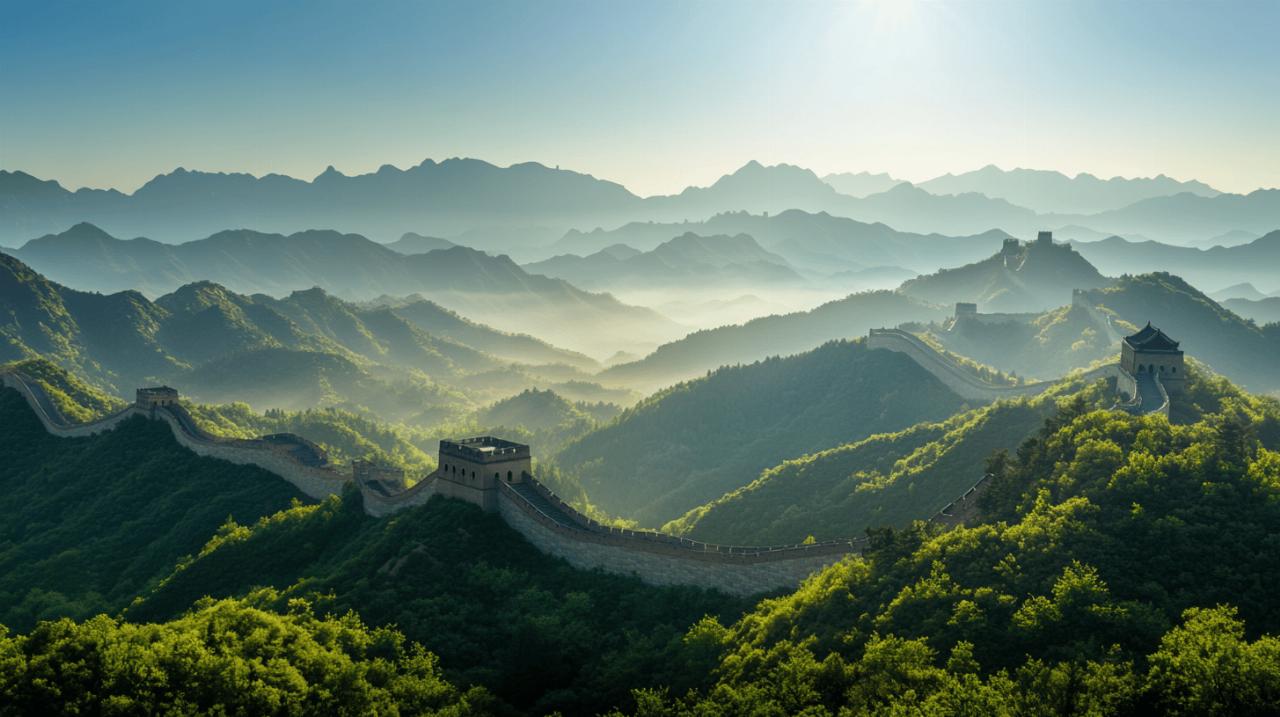China's vast and intricate tapestry of culture, history, and philosophy comes alive through its extraordinary literary heritage. For those seeking to understand the complexities of this ancient civilisation and its modern transformations, literature offers an intimate and revealing lens. Through stories, poetry, and philosophical texts, readers can traverse centuries of human experience, exploring the values, struggles, and aspirations that have shaped one of the world's most influential nations. The following exploration delves into the key literary works that illuminate China's past and present, offering pathways to deeper understanding and connection.
Ancient classics: the foundations of chinese literary tradition
The roots of Chinese literary tradition stretch back millennia, embedding themselves in texts that continue to resonate with contemporary readers. These ancient works are not merely historical artefacts but living documents that reveal the philosophical underpinnings and cultural values that have guided Chinese civilisation through the ages. To appreciate modern China, one must first engage with these foundational texts, which established themes of moral cultivation, social harmony, and the relationship between humanity and the natural world.
Confucian texts and their enduring philosophical impact
Confucian philosophy has profoundly influenced Chinese society for over two thousand years, shaping attitudes towards governance, education, and interpersonal relationships. The core Confucian texts, including the Analects, provide insights into concepts such as filial piety, respect for hierarchy, and the pursuit of moral excellence. These teachings emphasise the importance of self-cultivation and the role of education in developing virtuous individuals who contribute to a harmonious society. Hung-ming Ku's work, The Spirit of the Chinese People, explains the soul of Chinese culture and why Chinese people respect elders and nature, drawing heavily on Confucian principles. Understanding these texts is essential for comprehending the values that continue to underpin Chinese social structures and individual behaviour. The enduring relevance of Confucianism, particularly in its later Neo-Confucian forms, demonstrates how ancient wisdom adapts to changing historical contexts while maintaining its core emphasis on ethical living and communal responsibility.
Poetry of the Tang Dynasty: A Golden Age of Chinese Literature
The Tang Dynasty represents a golden age of Chinese poetry, a period when literary artistry reached unprecedented heights. Poets such as Li Bai and Du Fu captured the beauty of the natural world, the complexities of human emotion, and the social realities of their time. Their verses blend personal reflection with broader philosophical and political concerns, creating works that resonate across centuries. The collection Finding Them Gone: Visiting the Poets of China's Past offers a contemporary journey through the landscapes and legacies of these ancient poets, demonstrating their continued relevance. Tang poetry is characterised by its elegant use of language, its sophisticated formal structures, and its ability to convey profound meaning through seemingly simple imagery. Reading these poems provides insight into the aesthetic sensibilities and cultural values of classical China, including the reverence for nature, the importance of friendship, and the transient nature of life. These themes remain deeply embedded in Chinese cultural consciousness and continue to influence contemporary Chinese literature and art.
Revolutionary narratives: literature and china's modern transformation
The twentieth century brought unprecedented upheaval to China, with revolutions, wars, and radical social experiments transforming every aspect of society. Literature became both a tool for political change and a means of documenting the human cost of these transformations. Writers grappled with questions of tradition versus modernity, individual freedom versus collective responsibility, and the preservation of cultural identity amidst rapid change. These revolutionary narratives offer crucial insights into the forces that shaped contemporary China.
The May Fourth Movement and the Birth of Modern Chinese Writing
The May Fourth Movement of 1919 marked a watershed moment in Chinese cultural history, catalysing a literary revolution that challenged traditional forms and embraced vernacular language. Writers such as Lu Xun rejected classical Chinese in favour of everyday speech, making literature accessible to broader audiences and using it as a vehicle for social criticism. Lu Xun's short stories, including Kong Yiji and Diary of a Madman, expose the psychological and social damage inflicted by outdated traditions and oppressive social structures. These works employ biting satire and unflinching realism to critique Confucian orthodoxy and advocate for modernisation. The May Fourth Movement encouraged writers to engage with Western literary techniques and philosophical ideas whilst addressing distinctly Chinese concerns. This period established the foundations for modern Chinese literature, creating a tradition of socially engaged writing that continues to influence contemporary authors. The movement's emphasis on using literature to awaken national consciousness and promote social reform remains a defining characteristic of much Chinese writing.
Literary voices during the cultural revolution
The Cultural Revolution, spanning from 1966 to 1976, represents one of the most traumatic periods in modern Chinese history, and its impact on literature was profound. During this decade of political chaos, many writers were persecuted, and creative expression was severely restricted. However, the period also produced important works that documented the suffering and absurdity of those years, though often these could only be published after the movement's end. Yu Hua's novel To Live chronicles a family's experiences before and after the 1949 revolution, including the devastating impacts of political campaigns. The narrative reveals how ordinary individuals navigated extraordinary circumstances, enduring loss and hardship whilst maintaining their humanity. Similarly, works such as China Witness by Xinran collect oral histories that preserve the memories of those who lived through these turbulent times. These literary testimonies serve as vital historical documents, ensuring that the experiences of millions are not forgotten. They also raise profound questions about memory, trauma, and the relationship between individual lives and historical forces, themes that continue to resonate in contemporary Chinese society.
Contemporary chinese literature: global recognition and cultural identity
 In recent decades, Chinese literature has achieved unprecedented international recognition, with authors gaining global readership and prestigious literary prizes. Contemporary writers navigate the complexities of modern China, addressing themes such as rapid urbanisation, economic transformation, and the tension between individual aspirations and collective pressures. Their works offer windows into the lived experiences of Chinese people today, challenging stereotypes and revealing the diversity and dynamism of contemporary Chinese society.
In recent decades, Chinese literature has achieved unprecedented international recognition, with authors gaining global readership and prestigious literary prizes. Contemporary writers navigate the complexities of modern China, addressing themes such as rapid urbanisation, economic transformation, and the tension between individual aspirations and collective pressures. Their works offer windows into the lived experiences of Chinese people today, challenging stereotypes and revealing the diversity and dynamism of contemporary Chinese society.
Nobel laureates and international literary acclaim
The awarding of the Nobel Prize in Literature to Chinese authors has brought global attention to contemporary Chinese writing. Mo Yan, who received the prize in 2012, is renowned for his vivid portrayals of rural China and his innovative use of magical realism. His collection Explosions and Other Stories depicts life in the countryside, highlighting the differences between rural and urban experiences and the persistence of traditional beliefs amidst modernisation. Mo Yan's work demonstrates how contemporary Chinese literature engages with both historical memory and present-day realities, blending fantastical elements with gritty social observation. His international success has encouraged greater translation and distribution of Chinese literature worldwide, fostering cross-cultural understanding. Other Chinese authors have also gained international recognition, contributing to a more nuanced global perception of China. These writers challenge simplistic narratives about Chinese society, revealing its internal diversity and the multiple perspectives that exist within it. Their works remind readers that China cannot be understood through political analysis alone but requires engagement with the stories, emotions, and experiences of its people.
Urban Fiction and the Representation of Modern Chinese Society
The dramatic urbanisation of China over the past four decades has transformed not only its physical landscape but also its social fabric and cultural identity. Contemporary urban fiction explores the experiences of those navigating this new reality, from migrant workers in factory cities to young professionals in Beijing and Shanghai. Books such as Factory Girls by Leslie Chang document the lives of rural migrants seeking opportunity in urban centres, revealing both the promises and pitfalls of China's economic rise. Novels like Beijing Doll and Half a Lifelong Romance capture the emotional landscapes of city dwellers, exploring themes of love, ambition, and disillusionment. Urban fiction often addresses issues such as inequality, environmental degradation, and the erosion of traditional community structures. These works reflect the anxieties and aspirations of a generation experiencing unprecedented change. The collection I Am China examines how individuals construct their identities amidst competing influences of tradition, globalisation, and state ideology. By engaging with these narratives, readers gain insight into the daily realities of modern Chinese life, understanding how abstract economic and political forces manifest in personal experiences. Contemporary Chinese urban fiction thus serves as both social commentary and intimate portrayal of human resilience and adaptation.
Literary Windows into Chinese Governance and Social Change
Literature provides unique insights into the mechanisms of power and the dynamics of social change in China. Historical novels revisit dynastic periods to explore timeless questions of leadership, legitimacy, and moral responsibility, whilst contemporary works examine the challenges and contradictions of China's rise as a global power. These narratives help readers understand how governance and society have evolved and how historical patterns continue to influence contemporary politics.
Historical novels depicting imperial china and dynastic power
The great classical novels of China offer rich explorations of governance, strategy, and human nature within imperial contexts. Works such as Records of the Grand Historian by Sima Qian provide foundational historical narratives that blend factual documentation with literary artistry, establishing models for understanding Chinese statecraft. The Chinese Machiavelli: 5,000 Years of Chinese Statecraft examines the pragmatic political philosophies that guided rulers through centuries of dynastic change. Epic novels like Three Kingdoms dramatise the complex political manoeuvres and military campaigns of the late Han Dynasty, revealing how power is won, maintained, and lost. Journey to the West, whilst ostensibly a fantastical adventure, contains allegorical commentary on governance and social order. The Dream of the Red Chamber, often called the Bible of Chinese Culture by Xinran, provides an intimate portrait of aristocratic family life during the Qing Dynasty, revealing the intricate social hierarchies and cultural practices that defined elite society. These historical narratives demonstrate recurring themes in Chinese political thought, including the mandate of heaven, the importance of moral leadership, and the cyclical nature of dynastic rise and fall. By engaging with these works, readers develop a deeper appreciation for the historical forces that continue to shape Chinese political culture.
Contemporary works exploring china's global economic rise
China's transformation into an economic superpower over the past four decades represents one of the most significant geopolitical shifts of the modern era. Literary works exploring this transformation help readers understand both its mechanics and its human dimensions. Books such as Wealth and Power: China's Long March to the 20th Century trace the intellectual and political currents that led to China's current trajectory, examining how Chinese thinkers grappled with modernity and national revival. When China Rules the World considers the implications of China's rise for global governance and international relations, challenging Western-centric perspectives on world order. Contemporary fiction also addresses the social consequences of rapid economic development, including growing inequality, environmental challenges, and shifting values. The Souls of China explores the religious and spiritual dimensions of this transformation, examining how individuals seek meaning amidst material prosperity and social dislocation. Works like Beijing Welcomes You capture the contradictions of contemporary China, where spectacular development coexists with persistent problems and where official narratives often diverge from lived realities. By reading these diverse perspectives, one gains a more comprehensive understanding of China's complex present and possible futures, recognising that economic statistics alone cannot capture the full human story of this remarkable transformation.

